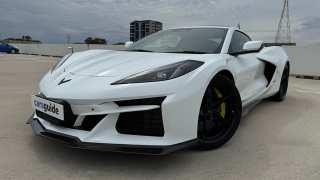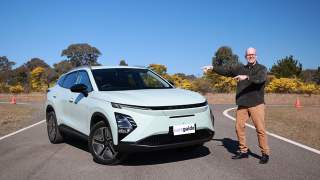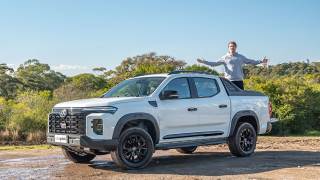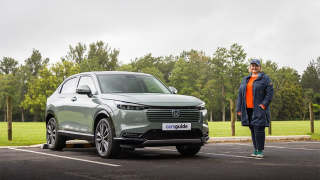When a meteor tore through Russian skies this year, the device that captured the sensational event was a car dashcam. These devices are small cameras attached to a windscreen that record what happens while you drive. They seem ubiquitous in Russia, and to understand why go to YouTube and have a look at some of the footage.
The incidents recorded range from the bizarre to the hilarious to the tragic. They are enough to convince you a dashcam is essential for driving in Russia -- if you're game to drive there at all. The devices are not common in Australia, but local distributors have been astonished by the demand for dashcams, set to have a massive impact on our insurance premiums and the way we drive.
The main idea is to record events in a way that can establish the facts in an accident where fault is in dispute. They can also prevent a common overseas scam that involves bumper-to-bumper traffic on a highway. As your lane comes to a halt, the car in front reverses into you. It's a rear-ender that has to be your fault -- unless you've got a dashcam.
Typically, the units are designed to record continuously and, when their data card is full, start overwriting. Or they can be switched on if a driver notices something problematic. Erratic driving or road rage, perhaps.
High-definition and a wide-angle lens gather enough detail to read licence plates and most will work to a greater or lesser degree at night. Some have multiple cameras, some infrared capability. Many have motion sensors that automatically retain the portion before and after the car has been nudged. Adding GPS means it can accurately locate an incident and the speed your car is travelling.
They can keep running while a car is parked. Features such as these have established dashcams as a separate niche from action-recording devices typified by GoPro cameras. Besides Russia, other nations have taken to them in a big way and dozens of units are available, most coming from Taiwan, Korea and China.
In Australia, dashcams are a fairly new phenomenon, but they are rapidly becoming popular. Navman, known for its satellite navigation units, began offering them a year ago and has been surprised by the demand. Navman country director Wendy Hammond says about 100,000 will be purchased this year, with the company cornering about 30 per cent of demand for units priced at more than $100. She expects total sales to double next year. "We're shocked by how many people are buying them," Hammond says.
About 75 per cent of buyers want proof for insurance claims while smaller groups of buyers, such as grey nomads, use them to record road trips. Some insurance companies are examining whether to offer discounts to drivers with a dashcam, and they welcome the independent evidence a video recording provides.
The corporate affairs manager at insurer AAMI, Reuben Aitchison, says although they are uncommon in Australia, dashcams have been vital in deciding some claims. "They can be useful for identifying who's at fault," Aitchison says. "Our memories are notoriously unreliable and within 20 minutes of witnessing an event our minds have changed what we've seen. A dashcam leaves it black and white."
When a driver is not at fault, a dashcam can save them money. "For customers who have been side-swiped and (the offender has) taken off, then that can help and the customer doesn't need to pay the excess." Aitchison says we are all getting used to a greater level of transparency in our actions and, as dashcams become more widespread, driving behaviour will improve.
"If people know there are a lot of dashcams on the road they'll be more careful in their own driving and how they respond to other drivers in general," Aitchison says. Another factor likely to boost sales is workplace health and safety. Queensland motoring body RACQ has just completed a trial of four units and as a result is about to fit 40 dashcams to its fleet.
Advocacy general manager Paul Turner says they will be fitted first to its highway clearance vehicles. "We're focusing on vehicles that operate in high-speed environments," he says. "We're motivated by workplace health and safety, and incident management." Assuming RACQ is happy with the results, its roadside response vehicles and tow trucks will get dashcams as well.
However, the dashcam itself might be just a stepping stone to more sophisticated systems. Aitchison says it's unclear where the technology will end up, with black boxes and phone apps competing with similar functions. Hammond says all the various devices on offer will potentially converge into a single unit containing satellite navigation, camera recording and even night vision. So the next time a meteor strikes, looks like more of us will be ready to record the moment.















Comments